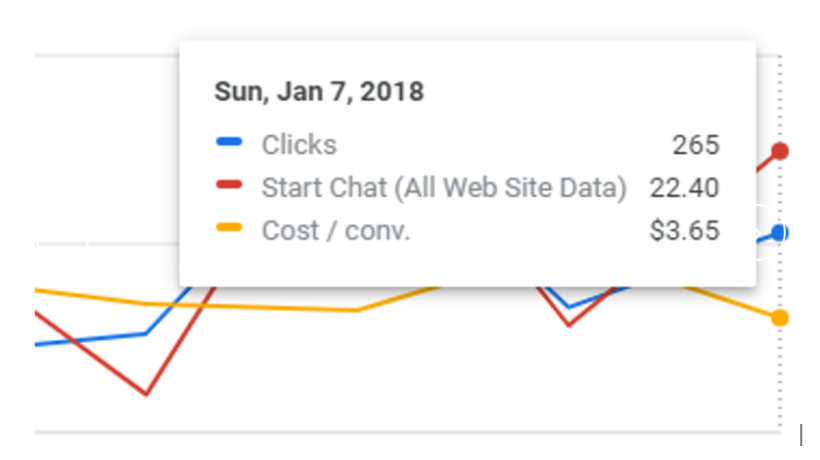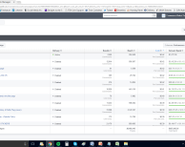In today’s fast-paced digital landscape, businesses are constantly seeking ways to enhance efficiency and drive growth. One of the most transformative solutions to emerge in recent years is advanced marketing automation. By leveraging sophisticated tools and technologies, businesses can streamline their marketing efforts, improve customer engagement, and achieve better results. This blog delves into the benefits, applications, and future potential of advanced marketing automation, highlighting why it’s an essential strategy for modern enterprises.
The Benefits of Advanced Marketing Automation
Advanced marketing automation offers numerous benefits that can significantly impact a company’s bottom line. Firstly, it improves efficiency by automating repetitive tasks such as email campaigns, social media posts, and customer segmentation. This automation frees up valuable time for marketing teams, allowing them to focus on strategic planning and creative endeavors.
Another key benefit is enhanced customer targeting and personalization. Advanced marketing automation tools use data analytics and machine learning to understand customer behaviors and preferences. This enables businesses to deliver personalized content and offers, improving customer satisfaction and loyalty. Additionally, automated lead scoring helps prioritize leads based on their likelihood to convert, ensuring that sales teams can focus their efforts on high-potential prospects.
Applications of Advanced Marketing Automation
- Email Marketing: Advanced marketing automation revolutionizes email marketing by enabling personalized, timely, and relevant communication with customers. Automated workflows can send welcome emails, follow-up messages, and re-engagement campaigns based on user actions. This ensures that customers receive the right message at the right time, increasing engagement and conversion rates.
- Social Media Management: Managing multiple social media platforms can be overwhelming. Advanced marketing automation tools streamline this process by scheduling posts, monitoring engagement, and analyzing performance across different channels. Automated social listening tools also help track brand mentions and sentiment, allowing businesses to respond promptly to customer feedback.
- Customer Relationship Management (CRM): Integrating advanced marketing automation with CRM systems enhances customer relationship management. Automated data entry, lead scoring, and follow-up reminders ensure that no potential customer falls through the cracks. This seamless integration helps maintain a consistent and personalized customer experience throughout the buyer’s journey.
- Content Marketing: Content creation and distribution can be time-consuming. Advanced marketing automation tools facilitate content planning, scheduling, and distribution across various channels. By analyzing user interactions, these tools can recommend the best times to publish content and suggest topics that resonate with the audience.
- Analytics and Reporting: Advanced marketing automation provides in-depth analytics and reporting capabilities. Marketers can track key performance indicators (KPIs) such as open rates, click-through rates, and conversion rates in real-time. This data-driven approach enables continuous optimization of marketing strategies and tactics.
The Future of Advanced Marketing Automation
The future of advanced marketing automation looks promising, with continuous advancements in artificial intelligence (AI) and machine learning driving innovation. Here are some trends to watch for:
- AI-Powered Insights: As AI technology evolves, advanced marketing automation tools will offer even deeper insights into customer behavior and preferences. Predictive analytics will become more accurate, allowing marketers to anticipate trends and make data-driven decisions with greater confidence.
- Hyper-Personalization: The next wave of marketing automation will focus on hyper-personalization. By leveraging AI and big data, businesses can create highly tailored experiences for individual customers, enhancing engagement and loyalty.
- Voice and Visual Search: With the rise of voice-activated devices and visual search technology, advanced marketing automation will need to adapt. Automated systems will increasingly incorporate voice and visual search capabilities to reach customers through new channels and formats.
- Enhanced Integration: Future marketing automation platforms will offer better integration with other business systems, such as e-commerce platforms, customer service tools, and inventory management systems. This will create a unified and seamless customer experience across all touchpoints.
Conclusion
Advanced marketing automation is revolutionizing the way businesses approach their marketing strategies. By automating repetitive tasks, enhancing personalization, and providing deep insights, these tools enable marketers to achieve greater efficiency and effectiveness. As technology continues to evolve, the potential for advanced marketing automation to transform the marketing landscape is immense.
Incorporating advanced marketing automation into your business strategy is no longer optional; it’s a necessity. By embracing these tools, businesses can stay ahead of the competition, deliver exceptional customer experiences, and drive sustainable growth.










